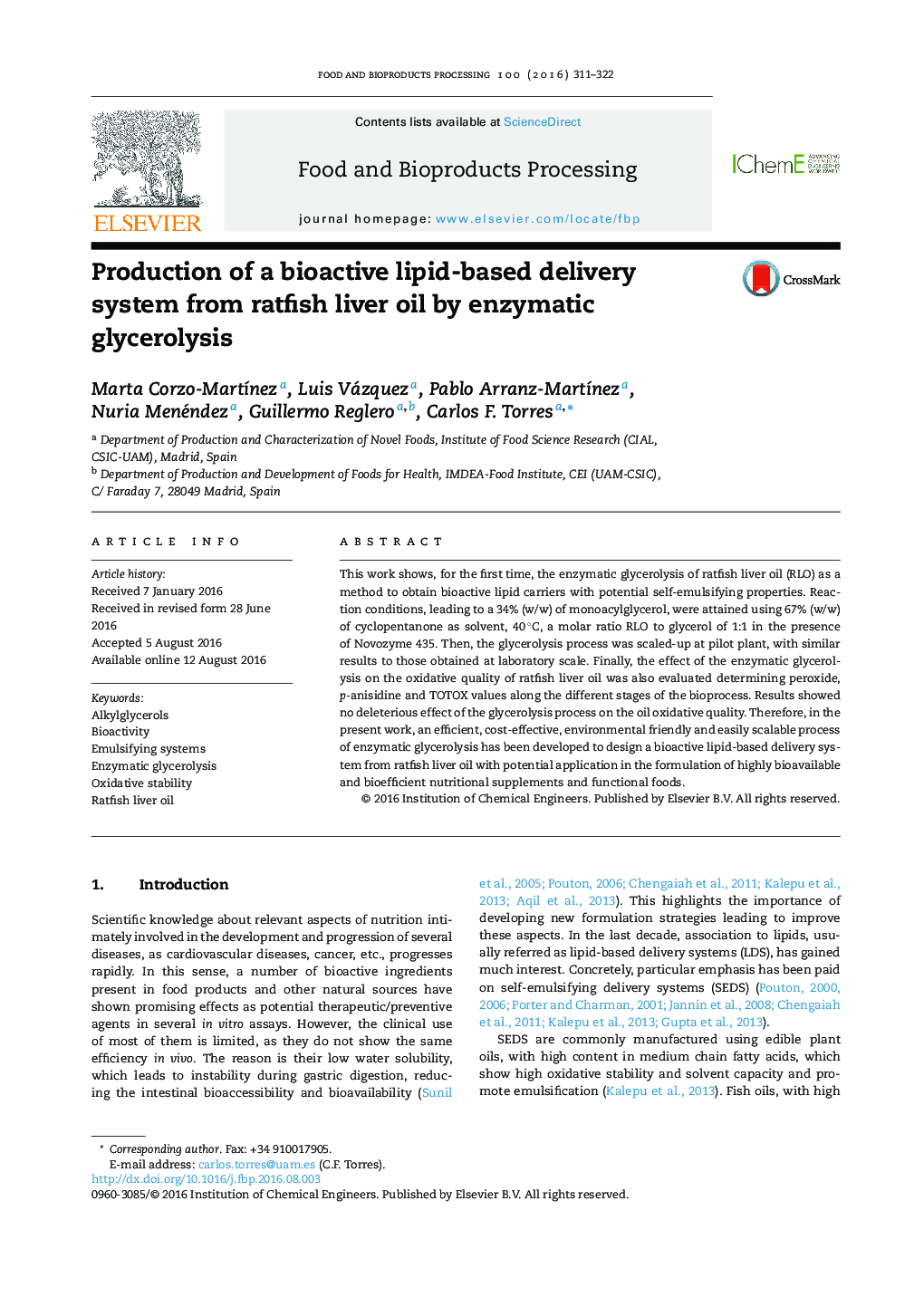| Article ID | Journal | Published Year | Pages | File Type |
|---|---|---|---|---|
| 6451747 | Food and Bioproducts Processing | 2016 | 12 Pages |
â¢Enzymatic glycerolysis of ratfish liver oil, rich in alkylglycerols, has been carried out for the first time.â¢An efficient method to obtain bioactive lipid-based delivery systems has been developed.â¢Glycerolysis process showed no deleterious effect on the oil oxidative quality.â¢Developed glycerolysis process is environmental friendly and easily scalable to pilot plant.
This work shows, for the first time, the enzymatic glycerolysis of ratfish liver oil (RLO) as a method to obtain bioactive lipid carriers with potential self-emulsifying properties. Reaction conditions, leading to a 34% (w/w) of monoacylglycerol, were attained using 67% (w/w) of cyclopentanone as solvent, 40 °C, a molar ratio RLO to glycerol of 1:1 in the presence of Novozyme 435. Then, the glycerolysis process was scaled-up at pilot plant, with similar results to those obtained at laboratory scale. Finally, the effect of the enzymatic glycerolysis on the oxidative quality of ratfish liver oil was also evaluated determining peroxide, p-anisidine and TOTOX values along the different stages of the bioprocess. Results showed no deleterious effect of the glycerolysis process on the oil oxidative quality. Therefore, in the present work, an efficient, cost-effective, environmental friendly and easily scalable process of enzymatic glycerolysis has been developed to design a bioactive lipid-based delivery system from ratfish liver oil with potential application in the formulation of highly bioavailable and bioefficient nutritional supplements and functional foods.
Graphical abstractDownload high-res image (123KB)Download full-size image
